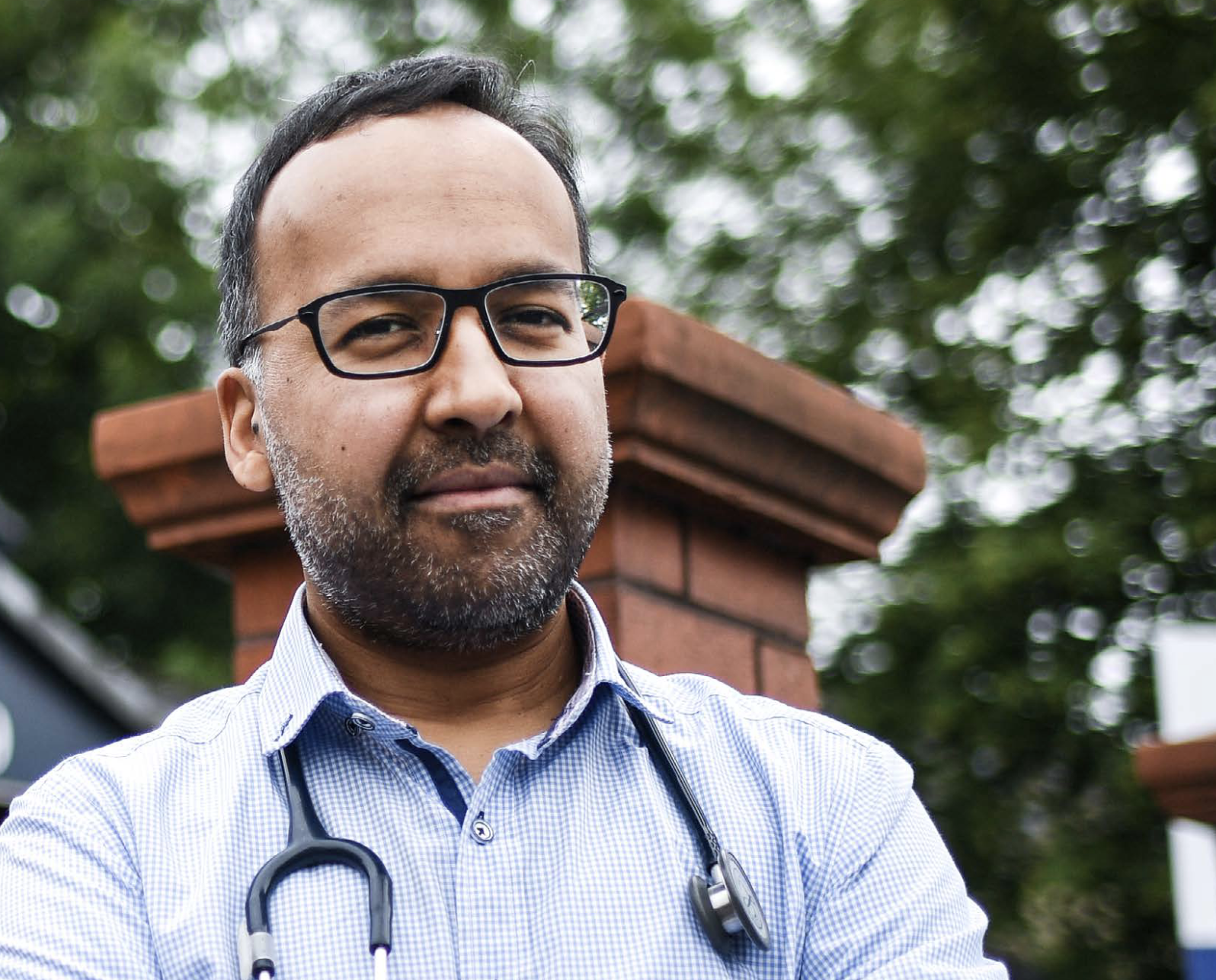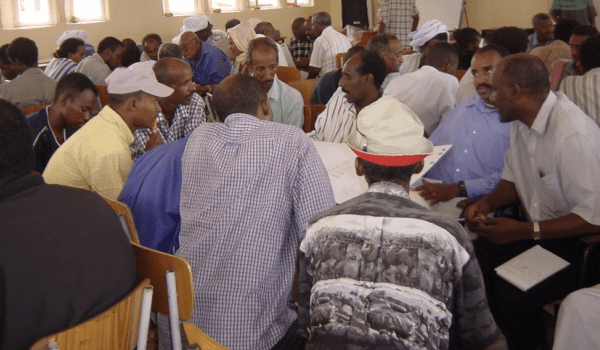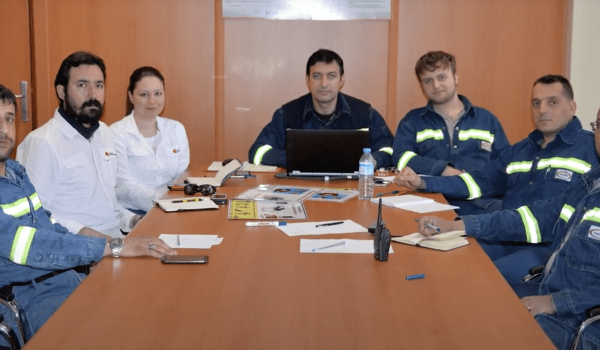
Working with the UK’s National Health Service (NHS) to tackle some of the most complex issues the health system is facing.
Support NHS leaders, those involved in the direct delivery of services, and patients to transform health in their communities at a time when the system is facing unprecedented complexities, including heavy financial pressures and a population living longer with multiple complex conditions.
In 2014-2015, RE!NSTITUTE trained and worked alongside Nesta’s team, jointly founding People Powered Results (PPR). The PPR team went on to support multidisciplinary teams across the country to explore innovative ways to address some of the NHS’ most complex challenges: from managing elective care to reducing unplanned admissions. The collaborative relationships created through the 100-Day Challenges continued to grow at scale and went on to produce extraordinary results and transformation over the next few years.
RE!NSTITUTE’s ethos and methodology was used to create the People Powered Results team, combining a structured approach with coaching support to enable frontline staff from across local health, social care, and voluntary sectors alongside patient representatives to achieve transformative results for people and communities.
Leaders from across the system empowered, challenged, and supported teams of frontline practitioners to develop and test innovative ways to improve care for people. Teams tackled and overcame systemic problems and tested ideas in real-time with real people on a rapid iterative basis.
The first People Powered Results’ site was in Essex, in partnership with Essex County Council. The focus was on reducing unplanned hospital admissions for people who are frail. The methodology quickly inspired the Clinical Commissioning Group to collaborate differently with stakeholders from across Essex and drove frontline teams to pursue and achieve unreasonably ambitious results with determination. The innovations they created to reach their goals inspired further waves of 100-Day Challenges across West, Mid, and South Essex, which helped further cement the collaboration needed for longer-term transformation. In other words, it helped them 'act their way into a new way of thinking.'
The Essex Challenge
Frontline teams from across the health and social care system, including representatives from local voluntary organizations, direct service providers with commissioners, and patient groups, sought to jointly tackle questions such as:
- How do we transform the care and support system to prevent people from unnecessarily going into the hospital on an unplanned basis?
- When patients need hospital services, how might we get them home quicker and more safely?
- How do we work with people to reduce their risk factors for diabetes?
- How to improve outcomes for frail older people in a more integrated and collaborative way?
Previous to the 100-Day Challenge, local leadership in the area had spent approximately eighteen months exploring a new commissioning approach for frailty. While there was good engagement across leadership, the conversation remained primarily strategic with little engagement of frontline staff.
Essex Team Results
- The first cycle ‘model month’ showed a 40% reduction in unplanned admissions.
- These results were tracked through a 2nd and 3rd cycle and stabilized at a 10-12% reduction in unplanned admissions.
- The above results were analyzed and validated locally by the CCG BI team and recognized as the ‘only scheme to show a real reduction in unplanned activity.’
- The collaborative relationship continued to grow at scale (as more people experienced the approach) and quality (as the CCG and partners launched a new collaborative strategy for the Health economy). This work was shortlisted for a Health Services Journal award for improving outcomes for the frail population.
Next, the People Powered Results team worked with the NHS England Strategy Group to tackle one of the NHS’ largest and most complex ongoing challenges: how to manage demand for elective care.
Two New Care Model Vanguards – Stockport Together, and Harrogate and Rural District – were invited to carry out 100-Day Challenges, setting their own goals and testing innovative ways of improving patient experience and speeding up access to elective care by better managing demand for these services. Teams comprised nurses, pharmacists, general practitioners, occupational therapists, consultants, dieticians, advanced nurse practitioners, physiotherapists, service managers, and patients.
As one of a number of measures to improve the relationship between primary and secondary care, the Elective Care Rapid Testing (ECRT) program tried several approaches:
- How better support for primary care (as set out in the General Practice Forward View) such as specialist consultant hotlines and advice) can improve referral accuracy, reducing the potential for patients to have multiple hospital appointments before finding the right service.
- How better use of technology such as virtual follow-up appointments can reduce the need to attend unnecessary outpatient appointments, and;
- How increasing the use of shared decision-making where professionals and patients discuss options and preferences for different treatments and providers can improve patient experience, choice, and outcomes.
Sample of Elective Care Team Results
One team increased local availability and use of teledermatology, which helped with the early diagnosis and referral to treatment of three cancer patients during the 100 Days.
- Several teams tested ways of providing specialist advice and guidance to GPs and patients. Overall, there was a 25% increase in advice and guidance requests, which helped people to access specialist support earlier.
- A new process for screening patients with diagnosed or suspected cataracts contributed towards the percentage of people treated, as demonstrated by a referral rate rising from 57% to 95% in one area.
Innovations developed and tested in 100 Days:
- Joint cardiology and respiratory clinic have been created in the community for people experiencing breathlessness who are on the waiting list for a hospital outpatient appointment. Clinicians and diagnostics services jointly run the ‘one stop’ clinic, focusing on designing a management plan around all the patient’s needs.
- Deflecting referrals to hospital-based trauma and orthopedics services through the triage of referrals by an extended scope physiotherapist. Helping to ensure patients receive the most appropriate and effective treatment with a focus on educating patients to help them make decisions about what care is right for them.
- Creation of patient education classes.
- Standardization of follow-ups across specialties.
- Creation of virtual clinics.
Alongside the measurable impact teams achieved for people and systems, there was also a shift in how people worked together. Participants felt that simple things, such as conversations before team meetings and knowing each other’s names, helped them to work more collaboratively and provide more ‘joined-up’ services.
We are proud that the People Powered Results team has since gone on to scale the approach across the health and care systems in the United Kingdom. Click here to see what else the 100-Day Challenge methodology has helped them achieve.
Subscribe to our newsletter to stay updated on this exciting work.
- National Health Service England
- Nesta
- Essex County Council
- Watch People Powered Results: West Essex 100-Day Challenge
- Watch Nesta - The UK's Innovation Agency

- Governance
- Health
- Training

- Health

- Health
- Training
- Health
- Housing & Homelessness
- Health
- Housing & Homelessness

